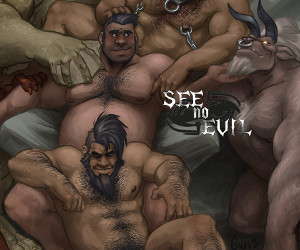Gay Games
The Gay Games go beyond a simple sports competition. The Gay games are a space where LGBTQ athletes compete without being afraid of intolerance.
In 1982, Olympic decathlete Tom Waddell founded the Games. They were based on three principles: participation, inclusion, and personal best. These values are at the heart the event.
The Gay Games and their origins
San Francisco’s first Gay Games were held on 28th August 1982. Tom Waddell was an Olympic decathlete, activist, and AIDS patient. He founded the Gay Games. He wanted to create an event that would allow people of all sexualities to compete in the same style as the Olympics without promoting any political message. The Games were a great success, and they set the precedent for future events.
Waddell banned the counting of medals and medal ceremonies as well as recording athletic records. He believed that athletes should be celebrated for their talent, and not pitted against one another. He died from AIDS in 1987, but his legacy lives on.
The Gay Games are held every four-years. While taking part in sporting and cultural events, they also visit the festival village located at the supporting venue of the host city. This event shows how FGG values such as participation, personal best and inclusion can influence mainstream sports.
The first Gay Games
Tom Waddell is the creator of the first Gay Games. They were held in San Francisco back in 1982. Tom Waddell had been a decathlete for many years and was an Olympic athlete. At that time, sexual minorities were not welcome in mainstream sport. He wanted the Olympics’ ethos to be applied to an international LGBT competition.
The Games were a source of joy and accomplishment for the participants. The Games were a powerful statement against the AIDS crises that had ravaged communities. Many athletes took part in a Parade of Nations, where they wore red shirts, the symbol of AIDS awareness.
The Games displayed courage and solidarity despite AIDS and encouraged LGBT clubs to flourish. The Games continue every four years. They are a major sporting event for the LGBTQ communities. The organisers of the event strive to eliminate sexism, racism, ageism and homophobia from their programme and practices, as well as from their ethos and spirit. Each host adds their own flair and style to the Games.
The second Gay Games
In 1990, Vancouver hosted the second Gay Games. The Gay Games featured a variety of cultural and sports activities as well a festival village. The games were an enormous success. They continued to grow around the world.
The Federation of Gay Games (FGG), a sports and cultural organization, aims to promote equal rights through sport. Its principles are: Participation Inclusion and Personal Excellence. Its goal is to make every participant feel welcome, respected and safe during the Games. FGG also encourages participation of individuals with physical disabilities.
Tom Waddell, the founder of the first Gay Games in 1968, had gender equality at its core. Waddell’s goal was to use the Games as a way to encourage LGBTQ people in their fight against intolerance. Waddell took inspiration from American athletes Tommie Smith at 1968 Olympics. Gender equality hasn’t always been the priority as the Games grew.
The third Gay Games
The Gay Games aims to promote the concept of diversity through sports and culture. The Games include athletes from all genders regardless of age or sexual orientation.
The Games are a platform for LGBT sports stars who would not otherwise be able to compete in regular men’s professional leagues. A same-sex figure skating team can perform in matching denim outfits to the tune of “Hopelessly Devoted to You.” It’s a place where trans basketball players from Uganda, a country in which homosexuality is criminalized and a crime, can win.
As the Games continue their evolution, they face challenges. The organizers of the 2023 Games — which was delayed an extra year because of a COVID related pandemic — have been forced to reduce the scale of the Games in order to draw participants. Valencia, Spain’s host city for 2026, faces similar challenges. The organizers hope to bring back the Games in a sustainable way.
The Fourth Gay Games
The Gay Games, in its second incarnation, have become more diverse and bigger than the first. The world’s biggest sporting and culture event is now “organized by LGBT athletes, musicians, and other participating participants”, and also a platform for community and advocacy in the LGBTQ communities.
Unlike at the Olympics, anyone can participate at the Gay Games. Athletes need not be professional or skilled at their sport to compete. However, they must pay in order to compete. Athletes are also encouraged by the organizers to speak out about discrimination during the Games, and to make the world a better place for LGBTQ individuals.
No matter if you are looking for a cheeky high fantasy or a dating sim, these games put LGBT experiences at the forefront. These games let you romance characters of all genders and sexual orientations, some of which even have poly relationships.
Send the link to e-mail and play later...


 Gay Harem
Gay Harem 3D Gays
3D Gays 3DXChat gay
3DXChat gay VR Gay Games
VR Gay Games Nutaku Gay
Nutaku Gay Try not to cum
Try not to cum





